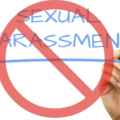Workplace Discrimination & Harassment in 2020: Are You Prepared for the Workplace Transparency Act?
 By: Katie Cummins, HR Consultant
By: Katie Cummins, HR Consultant
The Countdown to January 1 means more than just a new year! It means NEW compliance OBLIGATIONS. Illinois employers will soon face new restrictions and requirements related to workplace discrimination and harassment in 2020.
The Workplace Transparency Act (WTA), intended to increase employee protections by fighting discrimination and harassment in the workplace, was approved by the Illinois legislature and takes effect in 2020. The new law prohibits unilateral agreements to arbitrate claims involving discrimination, harassment, and retaliation for reporting discrimination or harassment. It also significantly changes annual sexual harassment reporting and training requirements.
What You Need to Know:
The Workplace Transparency Act prohibits employers from entering into any employment agreements (including separation agreements) that includes non-disclosure or non-disparagement clauses dealing with claims for harassment or discrimination, or from restricting an employee from reporting allegations of unlawful conduct to federal, state or local officials for investigation. Essentially, employers may not encourage an employee to keep silent about alleged unlawful employment practices in the workplace. Illinois employers, therefore, will need to review the language used in their employment agreements or standard arbitration agreements to the extent that such agreements are a condition of employment or continued employment.
Expanded Definitions and Applications of Harassment and Discrimination
Under the WTA, there are new expanded definitions related to harassment and protected characteristics. The WTA aims to prohibit actual or perceived discrimination and/or harassment based on a protected characteristic, including: race, color, religion, national origin, ancestry, age, sex, marital status, order of protection status, disability, military status, sexual orientation, pregnancy, or unfavorable discharge from military service.
The WTA has also amended the definition of “working environment” so as not to limit the premises an employee is assigned to perform work. The expanded definition makes clear that an intimidating, hostile, or offensive working environment is no longer limited to the physical location where an employee is assigned to perform his or her work. This makes sense given office is a verb and work takes place wherever we choose to “office” today.
Finally, the WTA extends protections to “nonemployees”, such as contractors and consultants. Employers could be held liable for harassing behavior that substantially interferes with contractors’ work performance or creates an intimidating, hostile or offensive working environment for them as members of a protected class. This will become increasingly important as businesses augment their teams with independent contractors, outsourced providers and the like.
Employer Disclosure Requirements
Beginning July 1, 2020 (and by each July 1 thereafter), employers and parties to a public contract in Illinois are required to disclose annually to the Illinois Department of Human Rights (IDHR):
- Total number of settlements entered into during the preceding year by the employer that relate to any alleged act of sexual harassment or unlawful discrimination.
- Breakdown of the number of settlements based on protected characteristics.
- Total number of adverse judgments or administrative rulings during the preceding year.
- Whether any equitable relief was ordered against the employer in any adverse judgment or administrative ruling.
- Total number of adverse judgments or administrative rulings based on protected characteristics.
Annual Sexual Harassment Training
In 2020, employers will be required to provide annual sexual harassment prevention training to all employees. The training must define sexual harassment including a summary of federal and state laws regarding unlawful harassment, provide examples of prohibited conduct, and declare the employer’s policies to prevent, investigate, and address sexual harassment in the workplace. The Illinois Department of Human Rights (IDHR) will create a model sexual harassment prevention training program and employers must either use the IDHR program or establish a training program of their own that exceeds the minimum standards provided by the model training.
What Should Employers Do Next?
At HRBOOST®, we recommend the following steps employers should take to be prepared for this new legislation:
- Review your employee handbook and current policies related to harassment and discrimination and ensure you have strong policies prohibiting harassment of all parties and protected classes and you have a reporting process in place for victims and witnesses.
- Review your contract and employment agreement language to ensure they do not waive existing or future claims of unlawful employment practices
- Provide annual sexual harassment training to all employees and YES, we can help you do this!
- Develop a procedure to document and investigate any claims of discrimination or harassment
At HRBOOST®, we are not employment attorneys, but we can help with policy development, process review, and training. Give us call, we are always on standby! Be proactive and start 2020 off right! You can book with us in time for the new year via www.hrboost.com/consultation Pick a window that works for YOU and we will be happy to meet you where you are on your journey to being an employer of choice.





